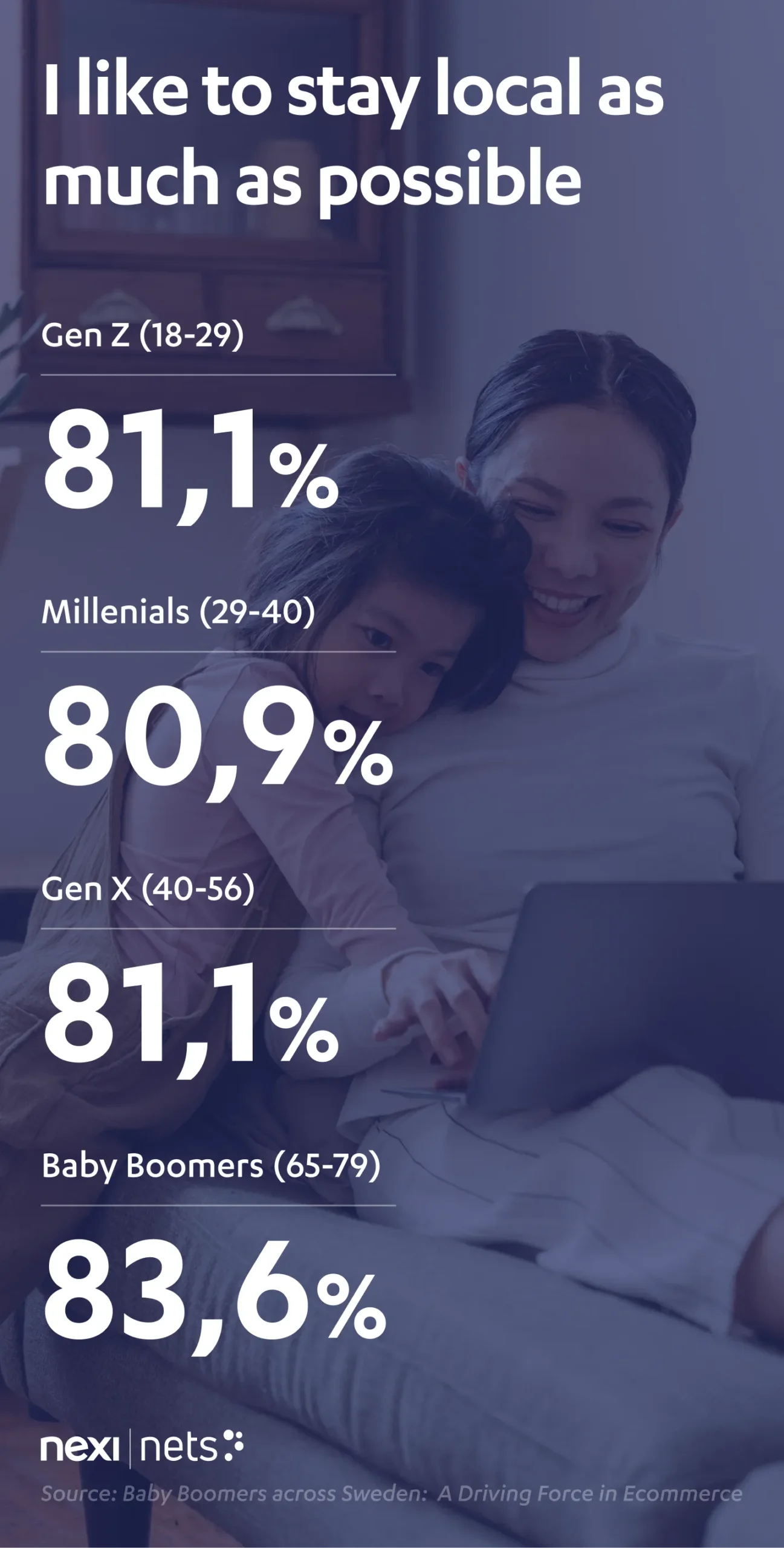According to Nexi/Nets Ecommerce Report Europe 2022, 68% of people surveyed say they buy from local shops. We learned what’s behind these numbers as consumers shared their thoughts and feelings about what it means to them to shop local.
In Norway, we found that 64% of consumers preferred to buy from local businesses. In Finland, 66% agreed, along with 83% in Sweden, and 75% in Denmark.
They told us:
- It feels good to support small/local businesses
- It feels more personal/familiar
- I don’t support big, global marketplaces like Amazon
In Austria, 49% agreed with all of these points, but this was the only audience surveyed where there were still more motivated consumers willing to cross borders to buy.
We found that in Germany, where 80% prefer to shop local, consumers agree that while it feels good to support small and local businesses and it also feels more personal or familiar, price was also a big factor in their decision. These sentiments match the responses from 66% of consumers in Italy as well.
Switzerland shows that 58% support small and local businesses and feel it’s more personal or familiar without sharing the sentiment that they do not support big, global companies. They also noted that small and local businesses offered delivery options, and participants from Norway said they appreciate local delivery options as well.
Another strong example of the rise of localism is seen in the research from Thoughtworks. In a recent survey, the research firm found that only 49% of British consumers expect to buy their food from supermarkets or larger retailers. This data seems sensible considering the sentiments and necessities sparked by the coronavirus pandemic and our collective requirements to stay closer to home. What may surprise you is that this same research was done in the UK by the same firm in 2018 and the response was 44%.
This supports the argument that shopping local is not simply a pandemic-inspired trend. As predicted by many sources in 2021, this drive to shop local looks like it’s here to stay. People all over Europe are reporting that they prefer to keep business in the hands of a closer community, with this preference continuing even as larger retailers and shops reopen and continue to offer great convenience.
Looking back at 2020 predictions, it’s clear that the consumer preference for local purchasing that started then is still true today. Research firm Kantar identified localism as one of the top three trends in consumerism across ~50 markets around the world.









